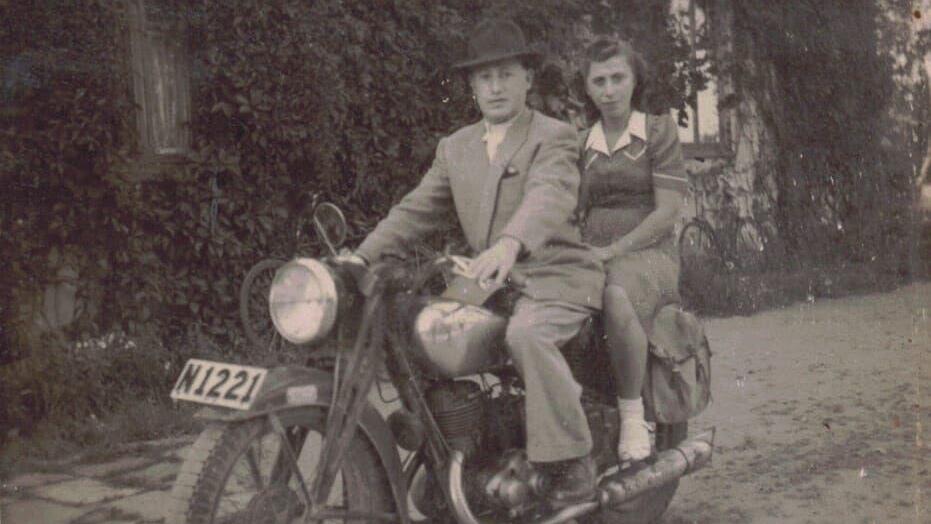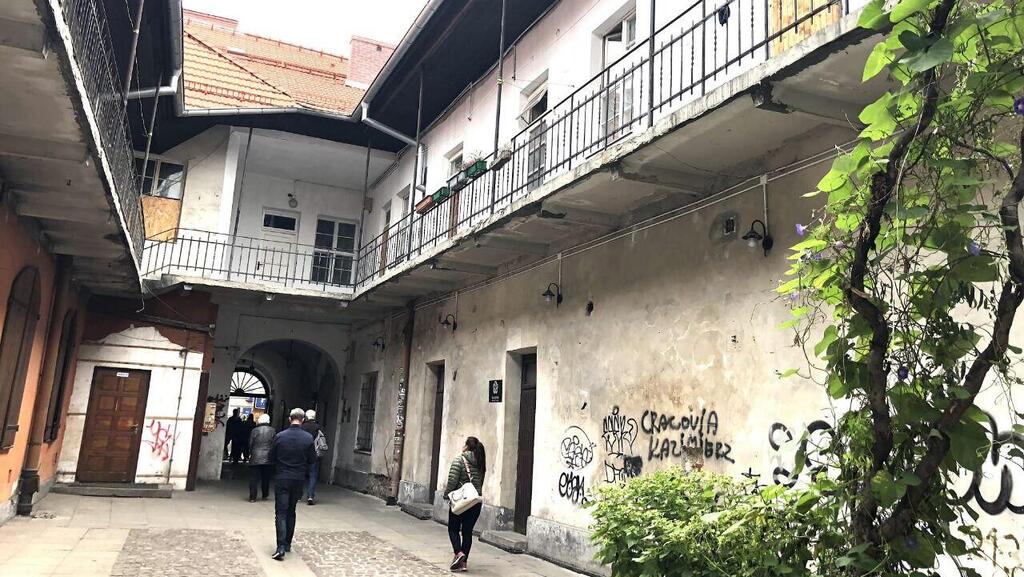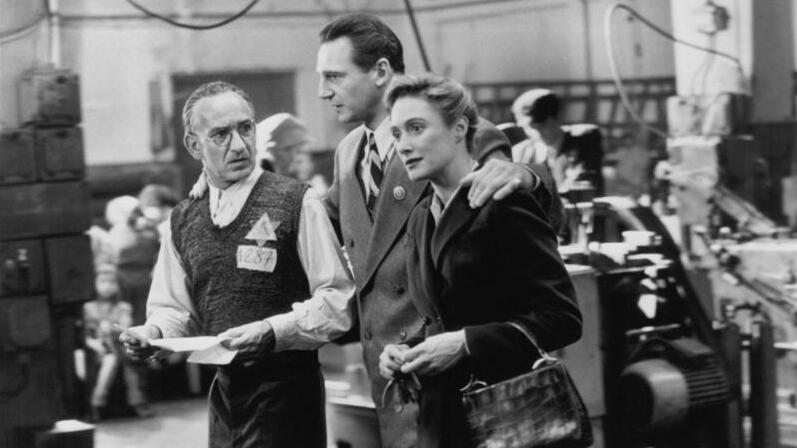Getting your Trinity Audio player ready...
As part of research he conducted in preparation for writing a book about his family’s history prior to the Holocaust, Max Friedman managed to track down his mother's address in Krakow, Poland.
When he arrived at 12 Jozefa Street, he found that the house, and especially its beautiful courtyard, had become an international tourist attraction after it was used as a movie set for "Schindler's List” by renowned U.S. director Steven Spielberg.
The courtyard of the house at 12 Jozefa has been called "the most beautiful courtyard in Kazimierz," Krakow’s historic Jewish quarter. In Spielberg's film, the building served as the central location in the Krakow ghetto, where many Jewish families had lived.
In the film, you can see how the Germans push people out of their apartments and throw their belongings from the balconies – and how a youth from the Jewish police hides a child and her mother in a niche under the stairs.
Friedman shared his personal story during the World Jewish Restitution Organization (WJRO), social media campaign which launched, on International Holocaust Day. The initiative calls on Holocaust survivors and their families to share stories about the homes they lived in before the Holocaust and how in one moment the life they knew ended.
The purpose of the campaign, under the hashtag #MyPropertyStory, is to increase awareness of the issue of private and communal Jewish property that was looted in the Holocaust and urgently endeavor to restore it to the families before it is too late. So far, many Holocaust survivors and their families have shared their stories.
The notable building in Kazimierz was built in 1802 as a two-story inn with an inner courtyard. Max Friedman’s mother and her family moved into the building in 1919. His mother and sister were sent to Auschwitz in the second half of 1944 and later to Bergen-Belsen.
"When we visited the building, I learned that following the film the house became a necessary stop on tours related to the history of the Holocaust in and around Krakow. I couldn't hold back, I sat on the steps of the house and watched “Schindler's List” again on my laptop, and it was a very moving moment for me," Friedman said.
Friedman is the author of Painful Joy, A Holocaust Family Memoir (Amsterdam Publishers, the Netherlands). The book was published on Yom HaShoah 2022 and represents five years of intensive research, seeking to unearth the real life stories of Sam and Frieda Friedman, Holocaust survivors and the author's parents. "When we went to research my family's history in Poland, the only place I could recognize that still remained intact and somehow represented my past – was in the building at 12 Josefa Street.
"I finally found something that was a tangible symbol for me of my family's past during the Holocaust. My mother’s stories of Josef Mengele and the ramp in Auschwitz profoundly influenced me. This is the only house my mother knew in her childhood and it became, in a very strange way, a place I could call home."
Mark Weitzman, Chief Operating Officer of WJRO explained that “#MyPropertyStory is a unique social media campaign in which Holocaust survivors and their families are invited to share their memories of the lives they had lost. Behind every stolen property and home, there is a story. This is a link and a connection to the history of Jewish families and communities that were torn apart during the Holocaust."




